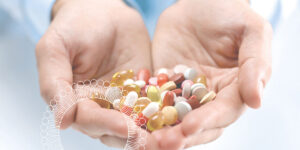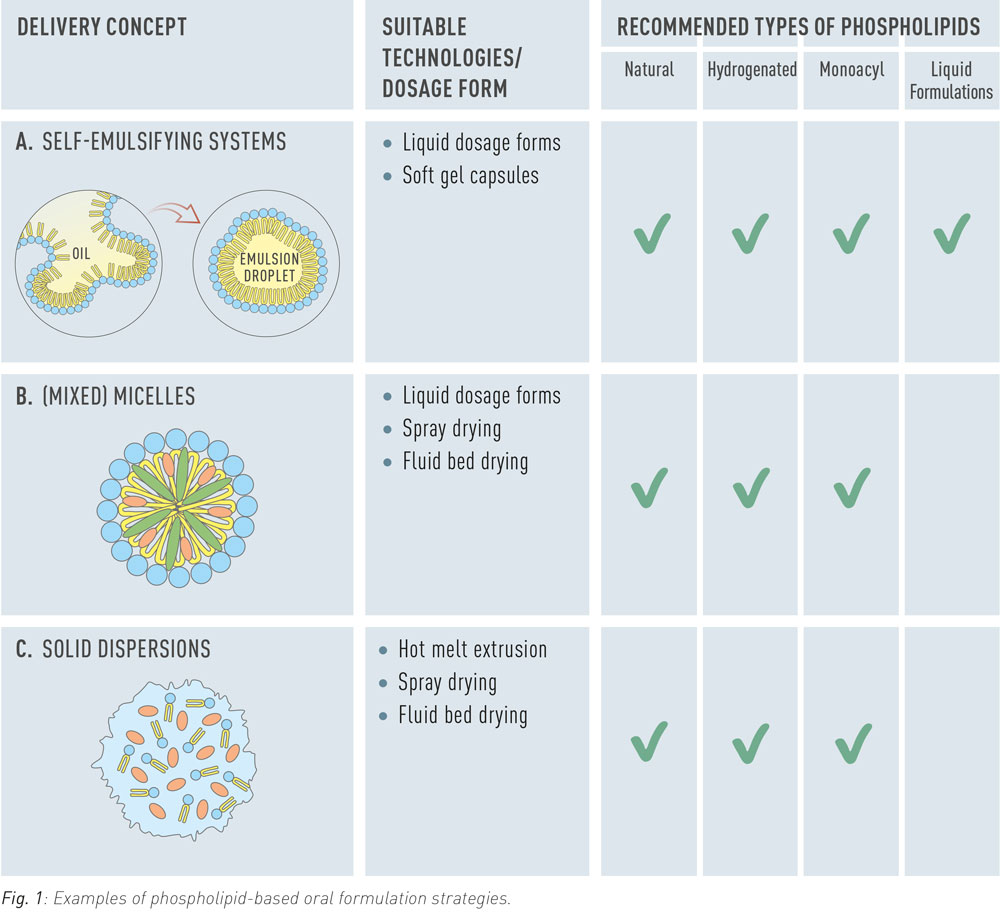Lipophilic Vitamins – A, D3, E, and K2
The four lipophilic vitamins A, D, E, and K are essential nutrients involved in numerous processes in the human body.

Figure 1: Selected examples of 14 EFSA approved health claims.
PhytoSolve® Technology
The PhytoSolve® delivery technology enhances the uptake of lipophilic nutrients in a natural way. Fat-soluble substances, like the four lipophilic vitamins A, D, E and K, require a carrier to be effectively absorbed. Due to their amphiphilic properties, phospholipids can enclose fat droplets in the form of an emulsion. The performance of the PhytoSolve® technology could be shown in an in vivo study with vitamin E.
PhytoSolve® ADEK
The unique formulation PhytoSolve® ADEK stands out from typical ADEK products owing to its excellent performance and high customer convenience. It enables a homogeneous distribution of the four lipophilic vitamins in an easy to dose but still small volume. PhytoSolve® ADEK can be mixed in any ratio with water, juice, dairy products, and many more.




